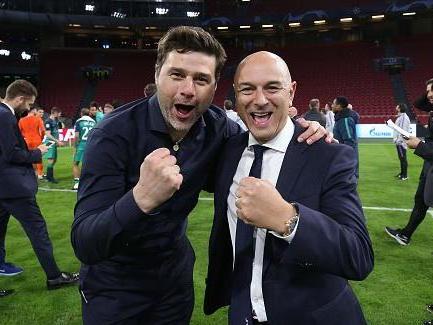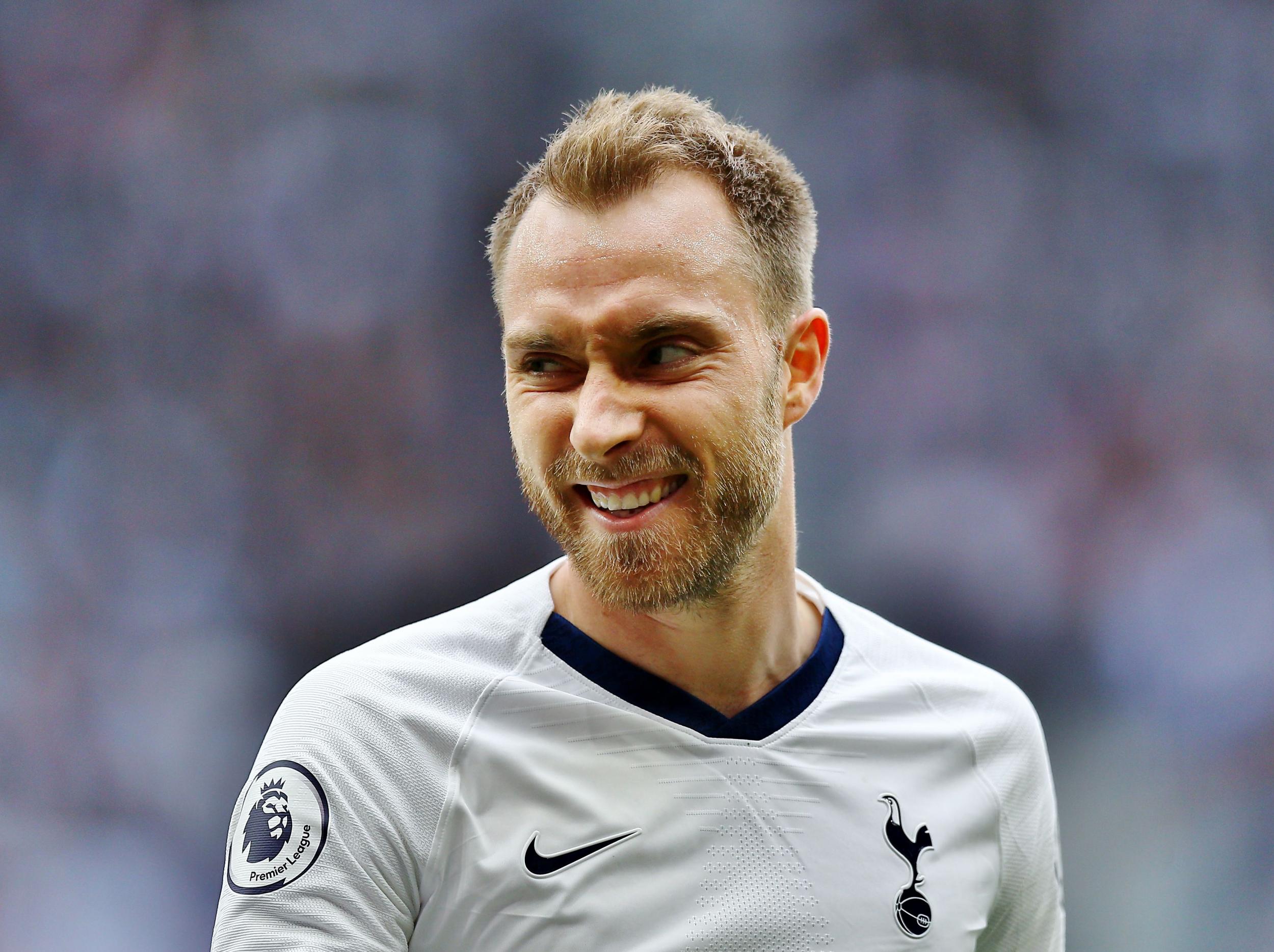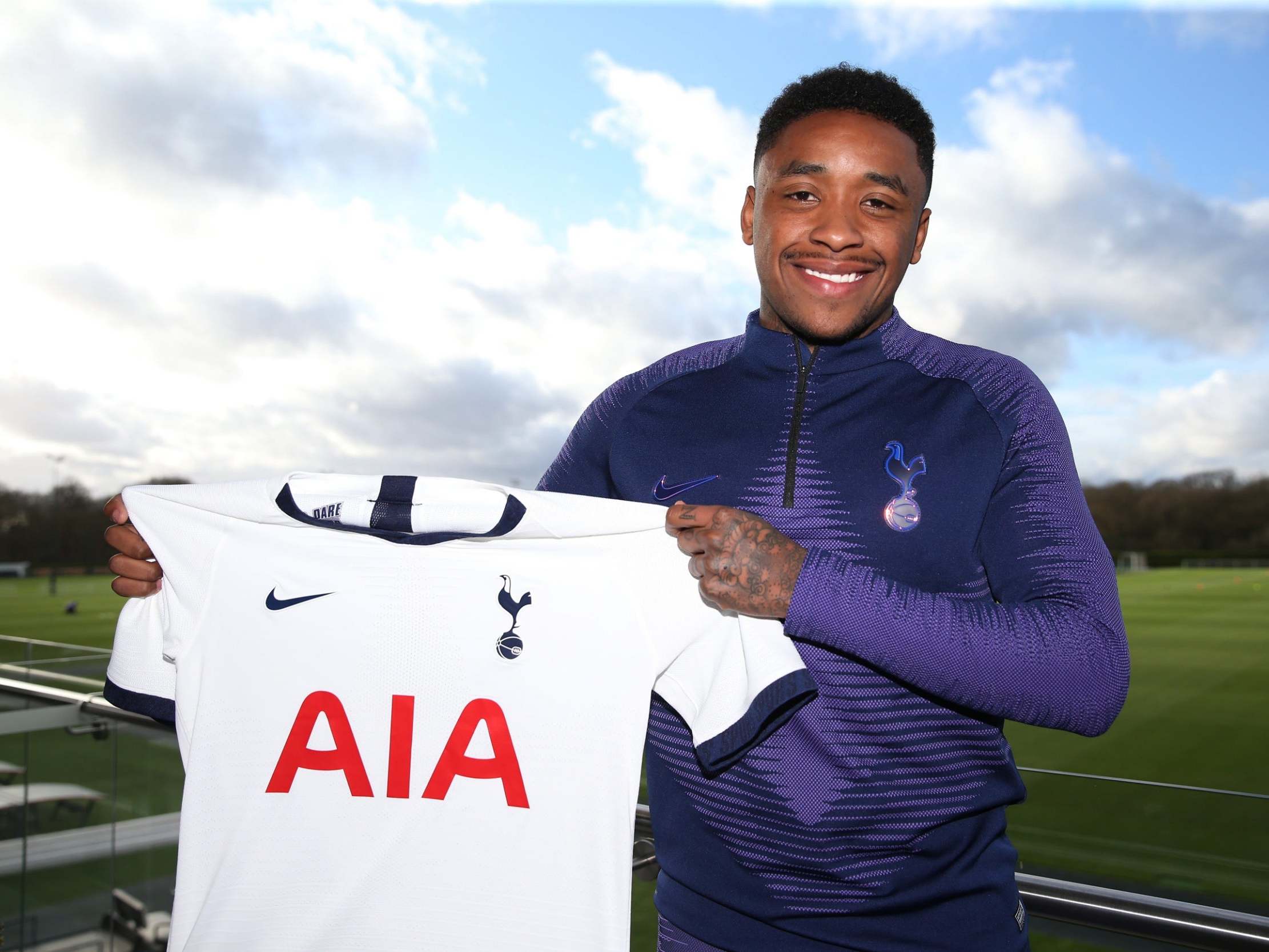Is Daniel Levy the cause of or solution to Tottenham’s problems?
Spurs are an exception to football’s modern model, sidestepping risk as they grow in a patient and painstaking manner
by Miguel DelaneyIt was one of those beautiful days at Tottenham Hotspur’s training ground that made the supreme facilities shine that bit more, only for Daniel Levy to notice something that wasn’t beaming. It was the face of a player who had been agitating for a move, and in that moment really didn’t seem to be happy to be there at all. So, Levy decided to push his buttons a bit in front of staff and teammates.
“Is he not going to smile?” the Spurs chairman asked those around the player. “Look around you. How can you not be happy to be here, with all this?”
“I’m just here to do a job,” the player responded.
Much of this was obviously a Levy power play, yet also a telling little twist on how Levy and ENIC are often perceived. The view is usually that they will always favour business over romance, but that was here turned on its head.
It also feeds into the single biggest question about Spurs right now, on the back of another highly-debated transfer window, and ahead of a tight race for the Champions League places. Have the ownership conditioned them to be a second-rung club who will never quite make the leap to the top because they never make the brave decisions and big-time investment necessary? Or have they - and specifically Levy - incrementally pushed Spurs to the very brink of super-club status through the smartest decisions, and precisely because they haven’t been so rash.
More than for any other Premier League club, it is the micro against the macro, short-term against long-term, romance against business… but with many shades of grey.
Both positions have hard arguments behind them. Among the most significant come from the recent Deloitte figures, which revealed Spurs have increased revenue by 21% to £459.3m, to now overtake both Chelsea and Arsenal on the Money League.
Other relevant figures are the fact ENIC have now owned the club for 20 years and yielded only one trophy: a solitary League Cup. There’s also their sixth place in the current Premier League table, as it feels like Spurs have fallen away from a recent competitiveness, precisely because they did not invest when Mauricio Pochettino had the club on the brink of something greater. It is a debate that will only ramp up in the coming weeks.
Instructive of much of it, however, is the view of a key figure from the club they’re playing this weekend: Manchester City chief executive Ferran Soriano. And that isn’t even the position Soriano was party to a few years ago, when the super-clubs held the last round of “super league” talks - and excluded Spurs. Levy was said to be livid at that. Many might say investing in stars would help - but that is where Soriano’s view really comes in.
When between jobs at Barcelona and City in 2011, the Catalan wrote a book called ‘The Ball Doesn’t Go In By Chance’, offering his business perspective on the football world. It also happened to offer one of the most perceptive and prescient studies on the sport in years. Soriano clearly explained the state of the market and what clubs must do to compete, dividing them into different groups.
The top were of course those “super clubs”, “that aspire to be leaders and global brands”. They had - at the time of writing - revenues “upwards of €200m every year”, “brands recognised everywhere”, “more than a hundred years of history”, the ability to “get the best players” and “aim to win” the biggest trophies. That group in 2012 naturally consisted of Barcelona, Real Madrid, Bayern Munich, Juventus, Milan, Inter, Manchester United, Chelsea, Liverpool, Arsenal and Manchester City… but, again, no Spurs.
They were in the second group of “national” clubs along with Valencia and Sevilla, who were relatively wealthy and competitive, but always faced a huge strategic choice. Do they accept their position and try to run “in a coherent fashion” every season, “so that maybe one year, with a bit of extra luck”, they could do something special? Or, do they “take a leap and inject” significantly? It sounds familiar.

Soriano describes the latter as “a risky strategic decision” that “must be approached with great caution”, before pointing to the collapses of Real Sociedad, Valencia and Leeds United after temporarily enjoying Champions League success.
“The risks start if the club gets used to winning and starts investing more to ensure this, being forced to change the business model,” Soriano writes. “The case of Valencia is one of inconsistent strategy, undecided whether to be in the group of clubs aspiring to be global brands or just be relevant in Spain with a profitable business.”
Whatever anyone thinks of ENIC or Levy, it is fair to say that Spurs have illustrated the opposite of this. They could be seen as an exception to Soriano’s model, but instead actually prove it, for the way they have navigated its nuances. They have sidestepped that hugely risky choice. They’ve sidestepped most risk at all.
Levy and the leadership have decided to try and grow, but in the most patient manner possible. This has been the reason for every hard bargain, every “painstaking” negotiation, every last-minute deal. “Incremental” is almost a mild way of putting it. It is also the reason for a lot of frustration around the club, particularly among the fans, and especially with Pochettino. This, however, is Levy’s principle. It is the ultimate long-term view.
The fair logic is that if you even bend on any single part you really just bend on all of it. That’s where the risk starts, and why clubs require real discipline. It might not make sense in single moments - like when you pass up on Jack Grealish for around £30m - but it does when you’re looking at the bigger picture. It’s also difficult to dispute when you look at Soriano’s specific words on Spurs in that book.

“United and Tottenham Hotspur earned identical revenue in the 1992–93 season. Tottenham was a historic, great London club that had had famous players such as Hoddle, Ardiles, and Gascoigne. The same applied to Manchester United at that time. Ten years on, in 2003, Manchester United was making 2.5 times more revenue than Tottenham. The management at United, competing with Tottenham, starting in a very similar place and in the same market, achieved spectacularly superior financial results… and Tottenham has never been able to make up the ground it lost during those years.”
Until now, and in pretty much the time since that book was written. And yet it’s also worth pointing to some of Soriano’s other words, that he put forth as the reason United struck ahead in the first place: “the virtuous circle”.
When Soriano and the new leadership took over at a financially stricken Barcelona in 2003, the club was at a crossroads. So, influenced by Old Trafford's commercial strategy, they broke the plan down to a clear business strategy. The only way to make money is to sell your product, and that product is the team and what it does. They thereby needed to take the first step of investing in the team, so that improves, you get more interest and the money self-perpetuates: the virtuous cycle.
Liverpool have done the same on a more sophisticated level. Tottenham, of late, have not done that. There are questions over how much they’re investing in the squad at all.
It is why it is simultaneously fair to praise Spurs’ long-term approach and criticise some of the more intricate elements. The latter does now seem to be affecting the former.
The squad is in an odd state, to say the least. There is a profile gap between the established Pochettino stars and the younger group, with few players in their prime in between. The logic of passing up on Grealish, or indeed Sadio Mane for £34m, is somewhat rumbled when you then pay £30m for Moussa Sissoko. The strategy to player contracts meanwhile seems to have been rumbled, and started to backfire. This is why, no matter what they’ve done in the window, the Christian Eriksen situation colours so much.

He was among the first - along with Toby Alderweireld - to realise Spurs’s approach of limiting players options by offering incremental contract increases early on, further tying them down. It was always a little bit more money for a lot more time committed. Great - so long as the strategy grows too. It didn't. Younger players naturally accepted this - until they started to mature. Eriksen consequently turned down repeated contract offers to leave himself free, and - yes - choose the long term over the short term. It increasingly tilted the balance in his favour, in a trend that soon tilted the balance of the Spurs squad.
It has now meant Levy has missed out on a potential sale of tens of millions for Eriksen, but that only raises another issue: the exact “value” of selling a player beyond what you get in price.
Levy has often blocked sales because he’s been insistent on Spurs keeping their asset, or because he has a stated price for that asset. But that can prove a negative all of its own. It can mean a squad is left with players the manager doesn’t really want to use, and whose wages prevent the use of money for other players.
This was one of a few factors in Pochettino’s gradual unravelling. His best squad is now - finally - beginning to come apart. Pochettino wanted this, and to do a Sir Alex Ferguson move of breaking it up to start again. That has happened but, of course, at far too pain-staking a pace. So we come to the end of another pain-staking window, where Spurs have eventually got deals done, but are still waiting on others. The most exciting signing is a Dutch forward in Steven Bergwijn who is hugely talented, but relatively unproven. Those last two words, however, would have been said of Dele Alli in 2015. It sums it up.
One view is that Spurs are missing a window all of their own. Levy might reasonably say you’ve got to look around, at the bigger picture.